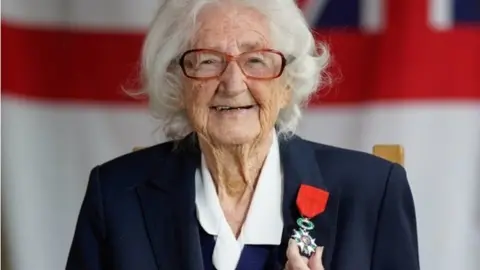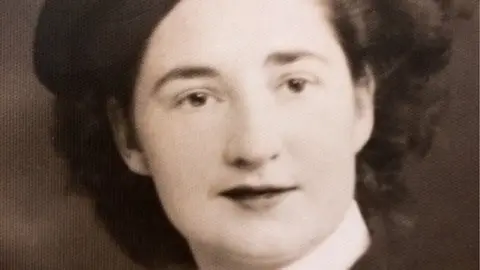WW2 codebreaker receives French Legion d'Honneur honour
 PA Media
PA MediaA former World War Two codebreaker has been awarded France's highest honour in recognition of her secret wartime work.
Lorna Cockayne, 95, from Christchurch, Dorset, worked at the top-secret Bletchley Park base while serving as a Royal Navy Wren.
Years later she learned she had been working on the world's first computer to break the Lorenz code used by Hitler to communicate with his commanders.
She was given the Legion d'Honneur medal at a ceremony on Friday.
Mrs Cockayne, then Lorna Fitch, worked on the Colossus computer at the government's main codebreaking centre, gathering crucial intelligence for the British military during the war.
 Lorna Cockayne
Lorna CockayneHer job was to feed intercepted messages punched out on teleprinter tape into a machine and count the letters to find a pattern.
She said: "Nobody knew what we were doing. We just went on duty and we were driven on coaches from Woburn Abbey. We did eight-hour shifts and were ferried back to our quarters."
She said the Colossus machines, which ran non-stop, were very hot.
"At the time we were pretty fed up with it," she said.
"All the windows were closed and blacked out so it was pretty warm.
"We spent our time counting the letters because, in any language, certain letters are more frequent than others and it has a pattern."
Mrs Cockayne said she initially believed she had been working on breaking the Enigma code but was "amazed" when, years later, she learned the messages she helped decode had been destined for Hitler himself.
The Legion d'Honneur, or Legion of Honour, is the highest French order of merit, both military and civil, and was established in 1802 by Napoleon Bonaparte.

Follow BBC South on Facebook, Twitter, or Instagram. Send your story ideas to [email protected].
